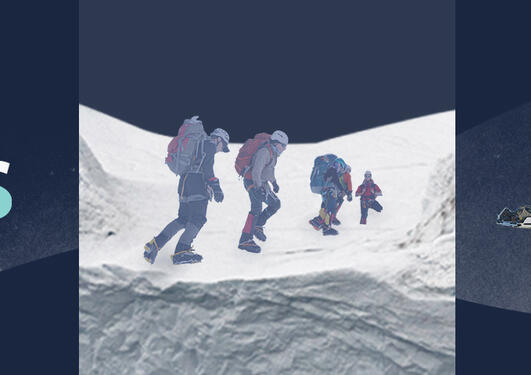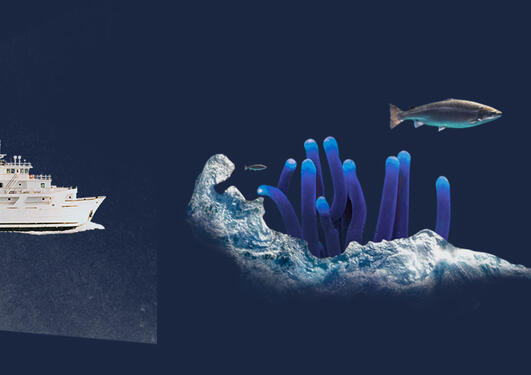Research possibilities for two MSCA SEAS postdoctoral research fellows in climate and early human development in coastal Southern Africa
The information on this page is a supplement to the complete advertisement of the position in the recruitment-portal Jobbnorge. The full advertisement of this position in Jobbnorge will be available after August 1st, and linked from this webpage. Call deadline is October 31st, 2022.
Main content
Key information
Two (2) positions | Two MSCA SEAS postdoctoral research fellows at Centre for Early Sapiens Behaviour (Department of Earth Sciences) |
Jobbnorge title | Two MSCA SEAS postdoctoral research fellows in climate and early human development in coastal Southern Africa |
Research areas for each of the positions | Position 1: Modelling the emergence of innovation, behavioural development and migration in early Homo Sapiens in coastal southern Africa. Position 2: Climate reconstructions of southern Africa using proxy methods connected with periods of early human behavioural evolution. |
Contact | Professor Eystein Jansen |
Mobility | For incoming candidates (see mobility rules) |
Unit of employment | Department of Earth Sciences at University of Bergen |
Thematic area and contact
The successful candidates will be employed at the Department of Earth Science and included in the SapienCE Centre of Excellence on Early Sapiens Behaviour.
The positions are dedicated two different research areas:
- Position 1: Modelling the emergence of innovation, behavioural development and migration in early Homo Sapiens in coastal southern Africa
- Position 2: Climate reconstructions of southern Africa using proxy methods connected with periods of early human behavioural evolution
Applicants must specify clearly which position/research area the application is aimed at.
The two positions are open to incoming candidates, see mobility rules.
Given more than one qualified applicant for one of the positions, and no qualified applicants for the other one, UiB will consider employing two fellows within the same research area.
Information about the Centre and research possibilities is available below.
For further details about the research and supervision possibilities please contact Professor Eystein Jansen. Upon contact Jansen will direct interested persons to relevant potential supervisors who will be able to offer advice towards the development of a research proposal.
Research possibilities and resources
Research environment in SapienCE
The Centre for Early Sapiens Behaviour (SapienCE) is a Centre of Excellence (CoE) established in 2017, funded by the Norwegian Research Council (https://www.uib.no/en/sapience). The centre is built around a team of international scientists specialized in the fields of archaeology, cognitive science/neuroscience and climatology, led by Professor Christopher Stuart Henshilwood. The main objective is to understand the key emergence of modern human behaviour in Southern Africa after 100.000 years ago.
The research Group
Climate scientists in SapienCE are affiliated with the Bjerknes Centre for Climate Research (BCCR) and comprise leading scientists working on climate simulations with global and regional climate and Earth System models and scientists working on proxy based climate reconstructions of Southern African climates both from marine sediment cores, speleothems and archaeological sites. The SapienCE Centre integrates climatic evidence with archaeological evidence and information from cognitive studies.
The Bjerkens Centre also offers multiple contacts in all fields of climate science and access to advanced research schools in the field.
Available infrastructure
The group has access to state-of-the-art global and regional models and high-perfomance computing resources, as well as modern laboratories for climate proxy studies including core scanning facilities (https://www.uib.no/en/earthlab) stable and radioactive isotopes, trace element analyses and various state-of-the-art inorganic and organic geochemistry facilities (e.g. https://www.uib.no/en/FARLAB).
Scientific opportunities – topical frame
SapienCE focuses on the emergence of cultural innovation in Homo sapiens populations of southern Africa between 120,000-50,000 years ago.
Homo populations started acquiring modern anatomical traits by ~300 000 years ago in Africa, but there is no evidence indicating that their behaviour was modern at the time. Current archaeological evidence, although limited, highlights the 120-50 ka interval as a period of accelerated human cognitive, technological and social development. The fundamental causes of this critical transformation remain, however, debated. One often-proposed mechanism is the need to adapt to rapidly changing environmental conditions.
Postdoctoral position 1: Modelling the emergence of innovation, behavioural development and migration in early Homo Sapiens in coastal southern Africa
Answering some of the biggest questions in SapienCE – particularly those related to movement, interactions between groups of early humans, their relationship to the marine and terrestrial environment and how these factors influenced cultural development (both technological and symbolic) requires exceptional effort and a truly transdisciplinary approach. One way to tackle the integration and interpretation of data across multiple disciplines is by building up expertise within the centre on ecocultural niche and agent/individual-based modelling informed by, and combined with, archaeological, climatic and social- cognitive information.
Ecocultural niche models (climate niche model = climate envelope model = species distribution model: often used synonymously) are a class of methods that use occurrence data in conjunction with environmental data to build a correlative model of the environmental conditions that meet a species' ecological requirements and predict the relative suitability of habitat. Agent/individual-based modelling, including geographic features, climate change, spatially and temporally varying vegetation, food resources, demography, competition, and cognition, offers an approach to explore the relationship between the emergence of modern human behaviour and environmental factors.
Applying these tools within the SapienCE framework will require linking across the three main themes of the centre: archaeology, climate, and cognition.
The selected candidate will be encouraged to further develop and integrate their own their own research interests within the scope of the of project.
Available supervision team
Margit Simon (main contact), Norwegian Research Centre: NORCE/SapienCE (paleoclimate/South African climate-human evolutionary linkages), Stefan Sobolowski, NORCE/ SapienCE (regional climate variability & change, climate modelling), Eystein Jansen, Department of Earth Science University of Bergen (UIB)/NORCE/ SapienCE (Earth Sciences /Paleoclimatology), Francesco d´Errico, CNRS/University of Bordeaux, France, Department of Archaeology, History, Cultural Studies and Religion, UIB/ SapienCE (Human Evolution, Anthropology, Eco-cultural niche modelling), William Banks, CNRS/University of Bordeaux, France, (Archaeology/Eco-cultural niche modelling)
International linkages and collaborators
Christoph P. E. Zollikofer, University of Zurich, Switzerland (Individual-based modelling); Axel Timmermann, IBS Center for Climate Physics (ICCP), Pusan National University, Korea, (Paleoclimate and Agent-based modelling), Øyvind Fiksen, Department of Biological Sciences UIB, Bergen Norway (Biological Oceanography, Behavioural Ecology, Marine Ecosystems).
Postdoctoral position 2: Climate reconstructions of southern Africa using proxy methods connected with periods of early human behavioural evolution
Reconstructing the ambience of the early human populations during the times of strong cultural innovations is a critical aspect of SapienCE. This may include reconstructing nearby oceanic and coastal marine environments, vegetation, climate parameters and their variability on seasonal to millennial scales in the Southern African region and integrating these with the archaeological records and the modelling work. How did climate change and how could these changes have influenced human occupation, migration and subsistence?
Available supervision team
Eystein Jansen (Main contact), Department of Earth Science University of Bergen (UIB)/NORCE/ SapienCE (Earth Sciences /Paleoclimatology), Margit Simon, Norwegian Research Centre: NORCE/SapienCE (paleoclimate/South African climate-human evolutionary linkages), Nele Meckler, (UIB)/ SapienCE (Earth Sciences /Paleoclimatology), Carin Andersson Dahl NORCE/SapienCE (Earth Sciences /Paleoclimatology)
International linkages and collaborators
- Ian Hall, Cardiff University.
- The Bjerknes Centre offers in addition numerous linkages to the leading international paleoclimate groups.
See the full advertisement in Jobbnorge
The full advertisement in Jobbnorge will be available from august 1, 2022, until call deadline October 31.
Important general information
Please be aware
- That until August 1st 2022 (official call opening), the information on this page must not be considered as final, as adjustments may be done! There might also be minor adjustments in the Guide for applicants and the templates needed for applying.
- That the application process is time-demanding and requires a close dialogue with name-given available faculty supervisor or contact who, close to the deadline, must sign a supervisor match declaration if an application is to be eligible.
- That some fields of research, especially within sensitive technology areas, might be enforced by Norwegian and international regulations regarding Control of the Export of Strategic Goods, Services and Technology. Candidates who by assessment of the application and attachment are seen to conflict with the criteria in these regulations might be prohibited from recruitment to UiB.

